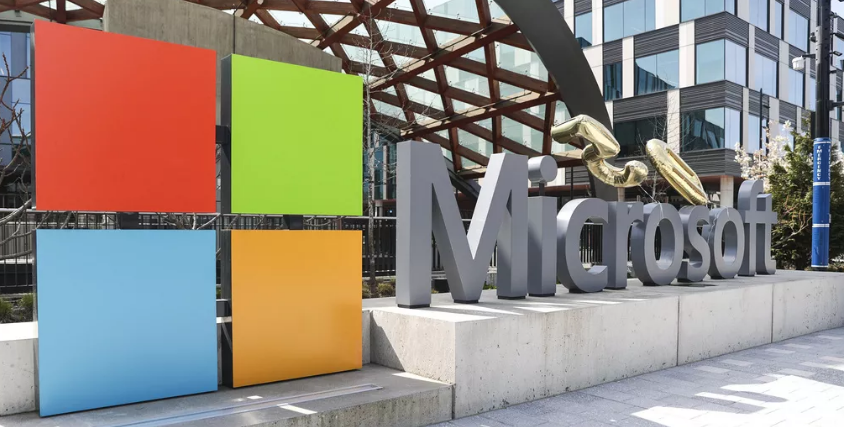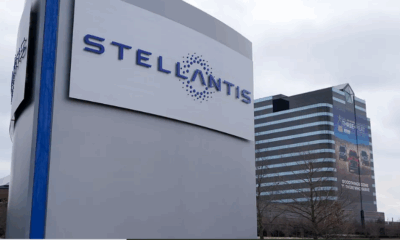Business
Microsoft Lays Off 6,000 Employees Amid Strategic Shift and AI Investment Drive

Microsoft has begun laying off approximately 6,000 employees, accounting for nearly 3% of its global workforce, in what is its largest round of job cuts in over two years. The company cited organizational restructuring as the reason behind the move, which comes despite strong quarterly earnings and ongoing investment in artificial intelligence (AI) infrastructure.
The layoffs began Tuesday and span various departments, teams, and global regions, though many of the affected roles are concentrated in Microsoft’s home state of Washington. The company notified state officials that 1,985 jobs would be cut at its Redmond headquarters, with most of those roles tied to software engineering and product management.
“This is a day with a lot of tears,” wrote Scott Hanselman, a Microsoft vice president, on LinkedIn, where several affected employees and company leaders shared news of the layoffs. “These are people with dreams and rent and I love them and I want them to be OK.”
The cuts affect units across the company, including the Xbox gaming division and LinkedIn, the professional networking platform owned by Microsoft. The company stated that the layoffs would impact workers at all levels but are particularly focused on reducing management layers to enhance organizational efficiency.
The move follows Microsoft’s earlier announcement in January of smaller, performance-based layoffs. This latest round is the largest since early 2023, when the company cut 10,000 positions in the wake of pandemic-era overhiring.
Microsoft Chief Financial Officer Amy Hood indicated during an April earnings call that while the company’s headcount had increased 2% year-over-year by March, it had slightly declined compared to the end of 2024. Hood emphasized the company’s aim to “increase agility by reducing layers with fewer managers.”
The restructuring comes as Microsoft intensifies its investment in AI technology, with an estimated $80 billion allocated for AI-related infrastructure, including data centers, in the current fiscal year. However, analysts suggest that while AI may influence how Microsoft operates, the layoffs are more reflective of strategic realignment than automation-driven job replacement.
“Big tech companies have trimmed their workforces as they rearrange their strategies and pull back from aggressive hiring during the early post-pandemic years,” said Daniel Zhao, an economist at Glassdoor.
With economic uncertainties looming and consumer spending patterns shifting, experts say Microsoft’s decision could also reflect a cautious approach to longer-term planning amid geopolitical and market fluctuations.
Laid-off employees in Washington have been informed their final day will be in July.
Business
European Steel Stocks Slide as Trump Tariff Hike Boosts U.S. Rivals

Shares of leading European steel producers dipped on Tuesday as markets reacted to former U.S. President Donald Trump’s plans to double tariffs on steel and aluminium imports, escalating concerns of renewed global trade tensions.
Trump’s proposal, which would increase existing tariffs from 25% to 50%, is set to take effect on June 4. The move has already jolted steel markets, sending European steel stocks lower while fueling gains among American producers. Trump defended the decision on his social media platform, Truth Social, declaring the measure a boost for U.S. industry: “Our steel and aluminum industries are coming back like never before. This will be yet another BIG jolt of great news for our wonderful steel and aluminum workers.”
European investors appeared less optimistic. German steelmaker Thyssenkrupp saw its shares fall 0.5% on the Frankfurt Stock Exchange on Tuesday, while Salzgitter AG slipped 0.4%. ArcelorMittal, one of the world’s largest steel manufacturers, dropped 1.1% on the Euronext Amsterdam. Austria’s Voestalpine AG also registered a 0.8% decline in Vienna.
Conversely, U.S. steel stocks rallied sharply following the announcement. Cleveland-Cliffs surged 23.2%, while Nucor and Steel Dynamics rose 10.1% and 10.3% respectively by Monday’s close, as investors bet on improved prospects for domestic producers shielded from international competition.
Despite the short-term boost for U.S. steel firms, the tariff hike has sparked fresh concerns about the broader economic consequences. Economists warn that the protectionist approach could backfire, raising costs for U.S. industries that rely heavily on imported aluminium and steel — particularly in the automotive and construction sectors.
Felix Tintelnot, professor of economics at Duke University, said the uncertainty surrounding such policy shifts makes long-term investment risky. “We’re talking about expansion of capacity of heavy industry that comes with significant upfront investments, and no business leader should take heavy upfront investments if they don’t believe that the same policy [will be] there two, three, or four years from now,” he told TIME.
Tintelnot further cautioned against setting trade policies unilaterally, emphasizing the need for a predictable economic framework. “Regardless of whether you’re in favour [of] or against these tariffs, you don’t want the President to just set tax rates arbitrarily, sort of by Executive Order all the time,” he said.
As global markets assess the potential fallout, the European steel industry may be bracing for more volatility, while U.S. manufacturers weigh the longer-term impact of a possibly inflationary policy shift.
Business
European Markets Slide as U.S.-China Tariff Tensions Escalate

European stock markets slipped on Monday afternoon as renewed trade tensions between the U.S. and China unsettled investors, reigniting fears of a prolonged global trade dispute.
By 13:05 CEST, all major European indexes were trading in negative territory. The EURO STOXX 50 had dropped 0.68%, Germany’s DAX was down 0.48%, and France’s CAC 40 had fallen by 0.63%.
The downturn followed comments from Beijing accusing the United States of “severely violating” the terms of their recent trade agreement, prompting concerns of a fresh round of retaliatory measures. Investors were also reacting to U.S. President Donald Trump’s announcement that tariffs on steel and aluminium imports would be doubled from 25% to 50% starting Wednesday.
“Donald Trump has upset markets once again,” said Russ Mould, investment director at AJ Bell, in a note shared with Euronews. “Doubling import taxes on steel and aluminium, and aggravating China once again, mean we face a situation where uncertainty prevails. Trump’s continuous moving of the goalposts is frustrating for businesses, governments, consumers, and investors.”
Market sentiment soured across Europe and Asia, with futures suggesting a similarly weak open for Wall Street later in the day. In response to rising uncertainty, investors turned to safe-haven assets, giving gold a boost.
U.S. Market Outlook Mixed
While U.S. equity markets ended May relatively flat, major indices posted solid gains over the month, lifted by earlier optimism around easing trade tensions. However, that sentiment is now under pressure.
“The latest broadsides from the White House were primarily directed at China and the EU, with both threatening a response in kind to any further tariff hikes,” said Richard Hunter, head of markets at Interactive Investor.
Still, there were some encouraging economic signals. The Federal Reserve’s preferred inflation gauge, the Personal Consumption Expenditures index, came in lower than expected, while consumer sentiment surprised on the upside. Analysts caution, however, that these may be temporary reprieves.
Looking ahead, attention is turning to U.S. non-farm payroll data due at the end of the week. Economists forecast 130,000 new jobs added in May, down from 177,000 the previous month, with unemployment expected to hold at 4.2%.
Despite recent gains, U.S. markets remain fragile. Year-to-date, the Dow Jones is down 0.6%, the Nasdaq 1%, while the S&P 500 has managed a modest 0.5% rise, bolstered in part by strength in large-cap tech stocks.
Asian Markets Also Weigh Trade and Geopolitics
Asian markets also came under pressure. The Hang Seng index fell amid renewed concerns over U.S. tariffs and geopolitical uncertainty stemming from ongoing Russia-Ukraine tensions.
Mainland China’s markets were closed for a public holiday, but investors expect potential losses upon reopening, particularly after recent data showed further contraction in factory activity.
With trade tensions heating up again, global markets are bracing for a volatile start to June.
Business
Costa Rica Emerges as High-Tech Powerhouse with Sustainable Growth Model
-

 Business1 year ago
Business1 year agoSaudi Arabia’s Model for Sustainable Aviation Practices
-

 Business1 year ago
Business1 year agoRecent Developments in Small Business Taxes
-

 Politics1 year ago
Politics1 year agoWho was Ebrahim Raisi and his status in Iranian Politics?
-

 Business11 months ago
Business11 months agoCarrectly: Revolutionizing Car Care in Chicago
-

 Business11 months ago
Business11 months agoSaudi Arabia: Foreign Direct Investment Rises by 5.6% in Q1
-

 Technology1 year ago
Technology1 year agoComparing Apple Vision Pro and Meta Quest 3
-

 Politics1 year ago
Politics1 year agoIndonesia and Malaysia Call for Israel’s Compliance with ICJ Ruling on Gaza Offensive
-

 Sports10 months ago
Sports10 months agoKeely Hodgkinson Wins Britain’s First Athletics Gold at Paris Olympics in 800m



























